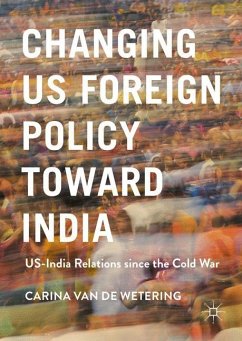This book uncovers how US-India relations have changed and intensified during the administrations of Bill Clinton, George Bush Jr., and Barack Obama. Throughout the Cold War, US-India relations were often distant and volatile as India mostly received attention at times of grave international crises, but from the late 1990s onwards, the US showed a more sustained interest in India. How was this shift possible? While previous scholarship has focused on the civilian nuclear deal as a turning point, this book presents an alternative account for this change by analyzing how India's identity has been constructed in different terms after the Cold War. It examines the underlying discourse and explains how this enables or constrains US foreign policymakers when they establish security policies with India and improve US-India relations.








